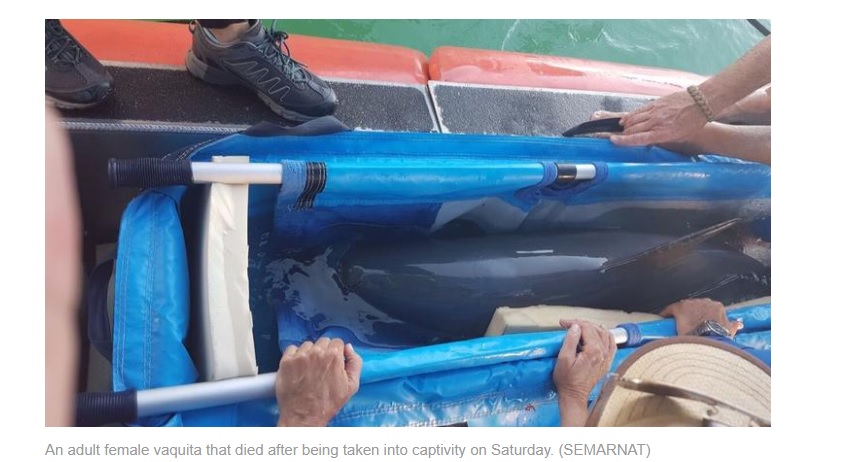A vaquita porpoise captured by an international group of scientists attempting to save the species from extinction has died, prompting a review of the operation launched last month in Mexico’s Upper Gulf of California.
“The entire rescue team is heartbroken by this devastating loss,” read a statement sent Sunday by VaquitaCPR (Vaquita Conservation, Protection and Recovery), the name of the operation led by Mexico’s Environmental Ministry in coordination with the San Diego-based National Marine Mammal Foundation and other organizations.
With fewer than 30 vaquita believed to be alive, the animal’s death is a blow to an intricately planned — and admittedly risky — effort to save the species by attempting for the first time to capture the animals alive and remove them from the wild. The operation was launched in mid-October off the coast of San Felipe in Baja California, enlisting some of the world’s top marine mammal experts.
The statement said the dead vaquita had been captured late Saturday afternoon, and described the animal as a mature female who was not pregnant or lactating. The animal had been transported to a floating sea pen off the coast of San Felipe, and placed under observation “and constant care for its health and safety,” the statement said
Marine mammal veterinarians “noticed the animal’s condition began to deteriorate and made the determination to release,” the statement said. However, “the release was unsuccessful and life-saving measures were administered.”
The news of the vaquita’s death came just hours after an upbeat announcement by Mexico’s environmental secretary, Rafael Pacchiano, immediately following the animal’s capture.
“It is a great achievement that fills us with hope,” Pacchiano said in a tweet.
The secretary said in a subsequent tweet on Sunday afternoon announcing the animal’s death that “we remain committed to saving the vaquita from extinction.”

